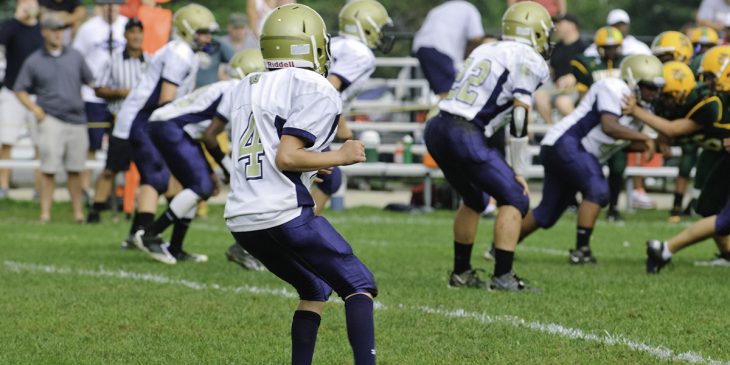Communication is at the foundation of a fan’s game day experience. From the messages delivered by the announcer to the calling of plays from the sidelines and the transfer of energy from the crowd to the players on the field, the one thing these behaviors have in common is the use of the human voice.
As fall sports begin for kids across the country and people prepare to cheer on their favorite collegiate and professional football teams, it is important to protect and care for the voice. Speaking is a motor behavior that is often not fully appreciated until the ability to communicate is lost.
According to the National Institute on Deafness and Other Communication Disorders (NIDCD), in the past 12 months an estimated 17.9 million American adults, or 7.6 percent, report having a problem with their voice, and nearly 9.4 million, or 4 percent, report having a problem using their voice that lasted one week or longer. Approximately 15 percent of American adults, roughly 37.5 million people, report some difficulty hearing.
These problems are also not exclusive to adults. Nearly one in 12 children in the United States 3 to 17 years old, or 7.7 percent, has had a disorder related to voice, speech, language or swallowing in the past year, and nearly three out of every 1,000 children born in the U.S. have a detectable level of hearing loss in one or both ears.
The next time you watch a game, either at home or in the stadium, keep the following tips in mind to protect your voice from overuse:
Use adequate breath support when projecting your voice.
Avoid the use of vocal extremes, including excessive and prolonged use of the voice.
Allow adequate time for your voice to recover following a period of heavy vocal use.
Minimize vocally traumatic activities, such as yelling and speaking over crowd noise.
Use amplification to make your voice heard, such as the cone-shaped plastic megaphones often found at pep rallies.
Seek professional help if your voice is injured or hoarse.
Vocal folds are delicate pieces of tissue that are susceptible to normal wear and tear, which can make the voice hoarse. Fortunately, this is not usually a serious issue, and it will resolve itself in a reasonable time frame. However, consult a doctor for hoarseness lasting more than two weeks. Hoarseness lasting longer than four weeks or that has no obvious cause, especially if you smoke, should be evaluated by an otolaryngologist, as this could be a sign of a more serious condition.
***
ABOUT THE AUTHOR: Bernard Rousseau, Ph.D., M.M.H.C., C.C.C.-S.L.P., ASHA fellow, is the recently-appointed chair of the Pitt School of Health and Rehabilitation Sciences Department of Communication Science and Disorders. His research interests include using innovative technology to improve surgical outcomes for patients with unilateral vocal fold paralysis and determining the safety and efficacy of treatments for voice disorders.









